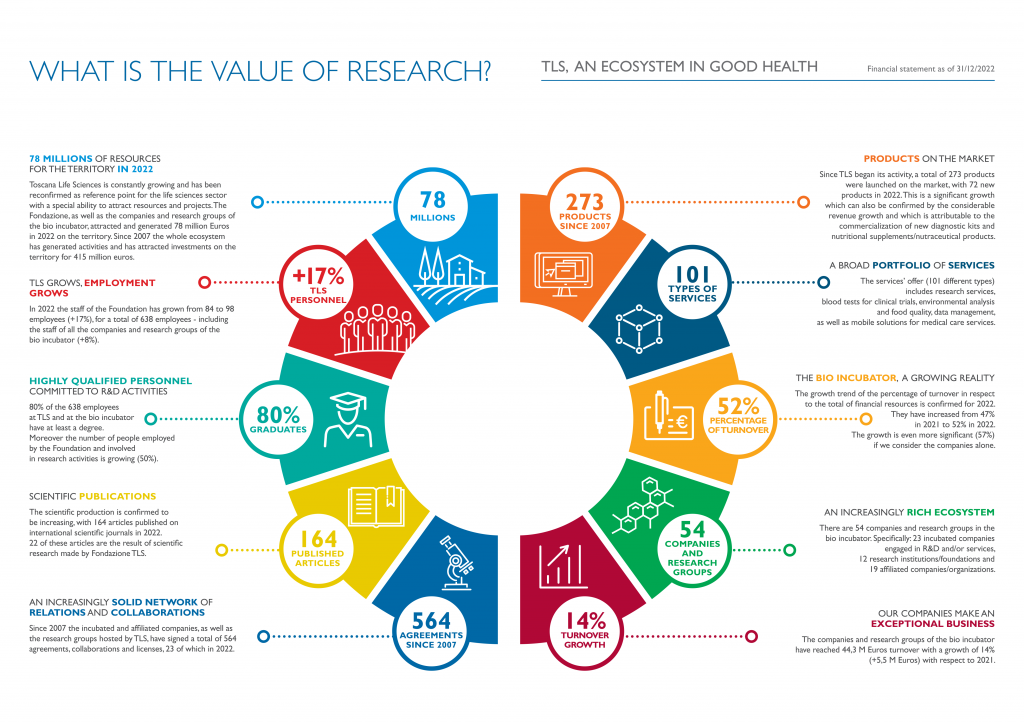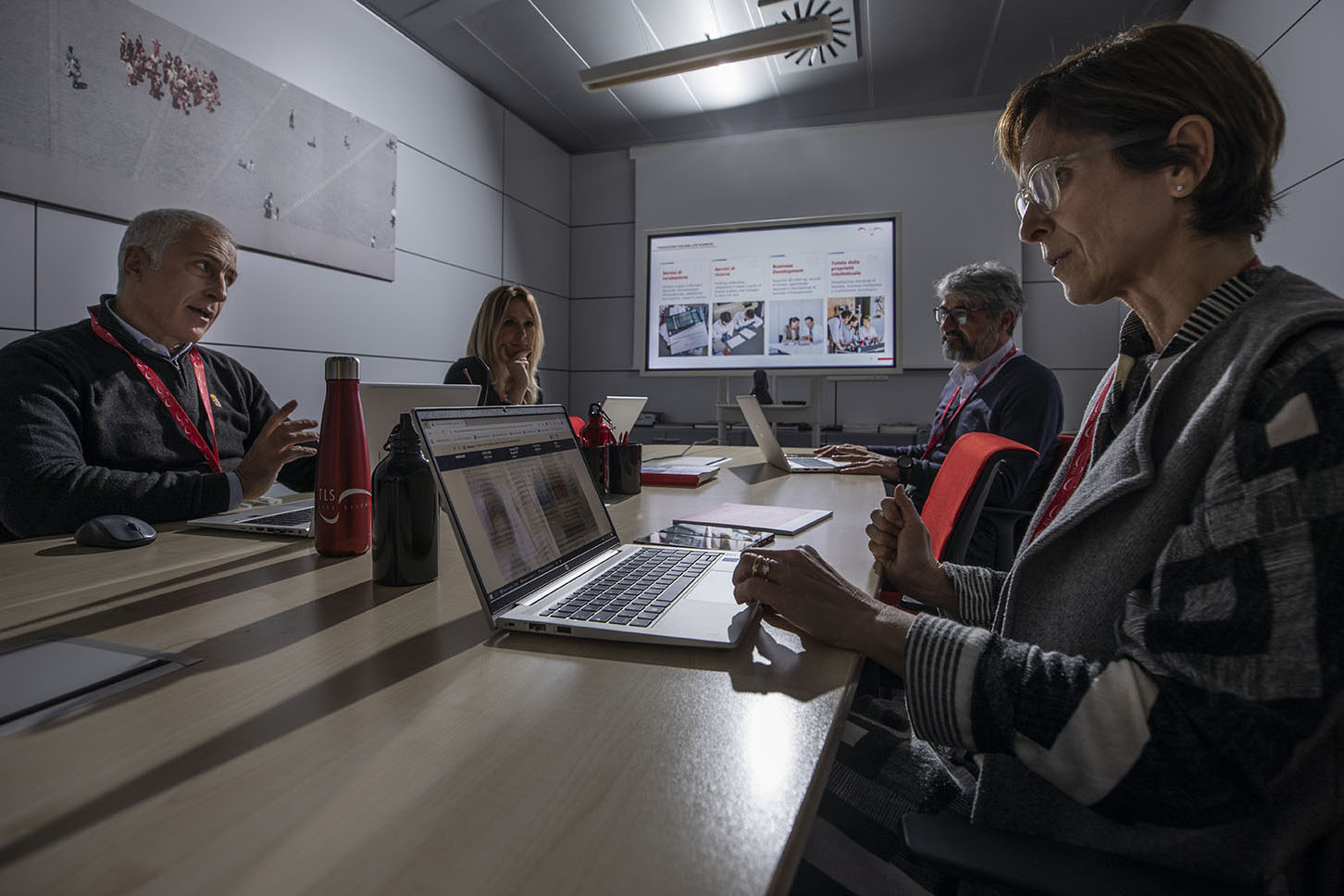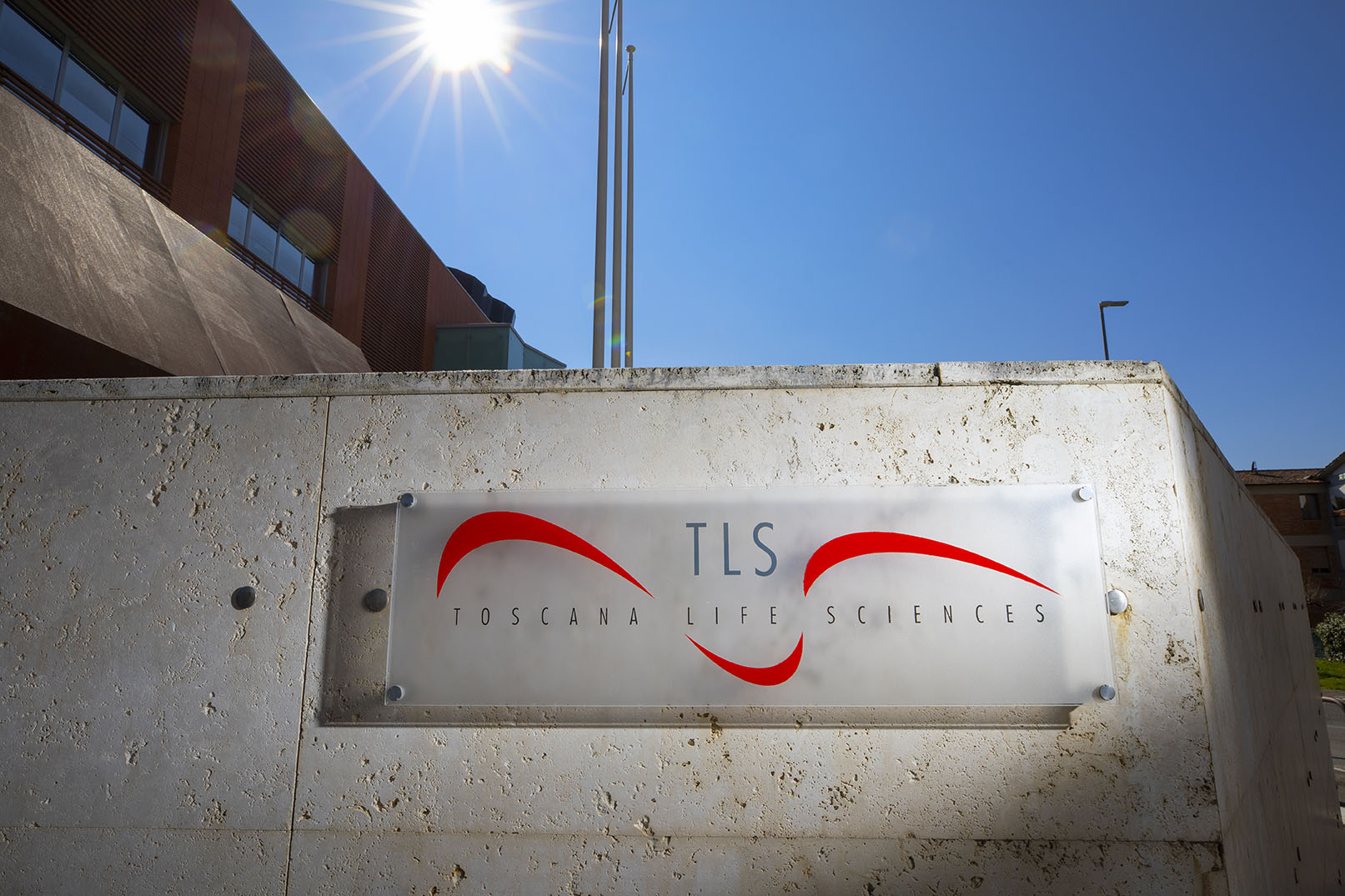The Toscana Life Sciences Foundation confirms its role as a reference point in the life sciences sector and as a resources and projects attractor. Its results stem from the solid identity that TLS has built and strengthened over the years around its three focus areas: in-house research activities, business incubation, and aggregation and facilitation of an innovation ecosystem, placing itself at the centre of a network comprising both public and private partnerships on national and international level.
2022 ECONOMIC PERFORMANCE – The economic performance of the TLS Foundation has registered good results and reconfirmed the Foundation’s ability to be self-sustaining and financing its development. In 2022, TLS recorded a total asset of over 17 million euros, showing a substantial growth trend compared to 2021. The income generated by the incubation activities and the third-party services amounts to 3.63 million euros. As far as research activities and other projects financed by European and national funds and other typical activities are concerned, the growth is continuous and relevant (a total of about 5.5 million euros). The resources attracted and generated from both the TLS Foundation and the companies and the research groups of the bioincubator amount to 78 million euros.
PEOPLE – Positive trend also for occupation: in 2022, the number of employees increased from 84 to 98 (+17%), 61% of which are women – a result that is particularly noteworthy because 62,5% of them are engaged in R&D activities, one of the three main focuses of the Foundation. Always concerning gender equity, starting from the 1st of July 2022, TLS has adopted the Gender Equality Plan (GEP), a policy document aligned with the national legislation that formalizes the intention of the Foundation to promote the full participation and valorisation of all the people that are currently working and studying in TLS to ensure equal opportunities and for all genders. The investment in human capital is underlined by the qualitative data: 86% of TLS employees have at least one degree, and 57.5% of them have post-graduate specialization (courses, Master’s Degrees, or PhDs). The number of researchers has increased as well (+9 compared to the previous year) thanks to the cooperation with Universities (Siena, Pisa, Trento, Parma, Perugia, Modena, and Reggio Emilia) and the Foundation’s constant commitment to the training of students; in fact, TLS offers curricular internships and finances Ph.D. scholarships aimed at direct hiring. Looking at the numbers, TLS hosts 12 doctoral students and 11 interns.
THE BIOINCUBATOR – In 2022, the growing trend of the incubated companies’ turnover was reconfirmed and settled at 44.32 million euros, with an increase of 14% (+5.46 million) compared to 2021. The fundings attracted by the affiliated and incubated companies, on the other hand, amount to 18.83 million euros (for a total of 157.2 million euros earned since 2007). The affiliated and incubated companies are 54 (23 involved in R&D activities and/or services, 12 research institutions/foundations, and 19 affiliated companies/organisations). Concerning occupation, since 2007 – when the incubation activities first started – the number of people employed has grown to 540 in 2022 (+31 compared to 2021), which, added to the 98 employees of TLS, reaches a total of 638 employees and collaborators. 79% of the employees hold at least a degree, and 20% of them also hold a master’s degree or a Ph.D. Compared to the previous year, the percentage regarding the gender composition of the employees is stable (58% female population and 42% male population).





